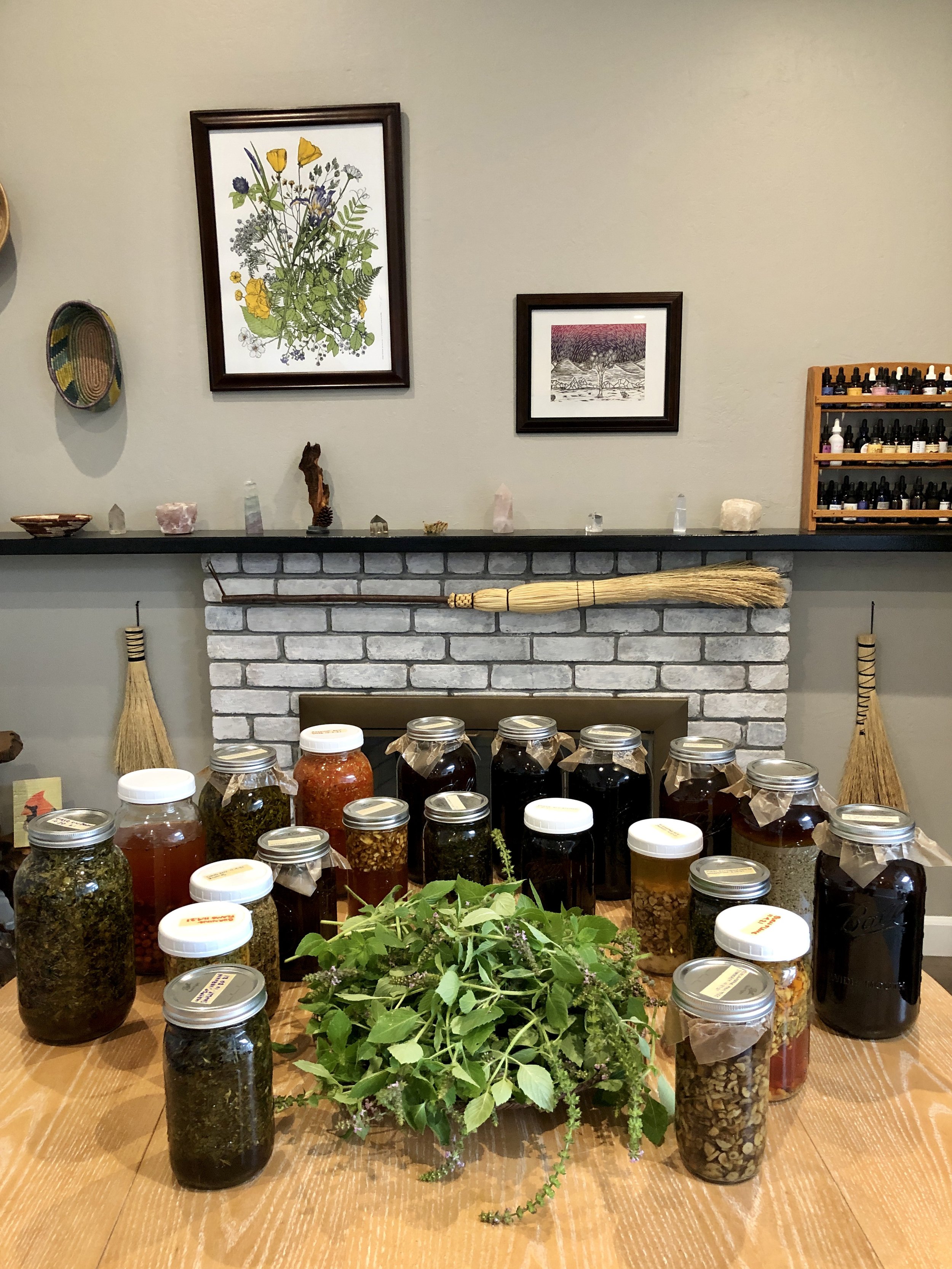
Herbal Consultations
Building relationships with plants, while helping you guide your own healing.
Our time together is a collaboration among you, plants, fungi, your guides and any intention you’d like to invite in. You are the expert on your health and an active participant in your own experience. My role is to match you with plant supports and help you map this work for yourself in the ways that feel most beneficial to you.
In-Depth Care
90-120 min / $80-160
• An initial online consultation to discuss your goals, concerns, personal history.
• Assess any acute or ongoing issues.
• Includes 3-5 hours of research outside consult to formulate and prepare.
• Includes outtake email of detailed plan with herbal recommendations.
• Price does not include cost of herbs.
• Sliding scale options available.
Follow-Up Care
45-60 min / $50-100
• A virtual consultation for returning clients to check on your progress and refill herbs.
• Discuss any changes, what may or may not be working and any next steps.
• Includes 2-3 hours research.
• I recommend booking follow-up consultations every 4-6 weeks.
• Price does not include cost of herbs.
• Sliding scale options available.
Collective Care Bundle
$200-360
• 3-5 month plan for receiving consistent herbal care recommendations.
• Includes an online in-depth consultation & 3 online follow-up consultations.
• Follow-up consults & herb refills happen every 4-6 weeks.
• Includes 9-14 hours of research.
• Price does not include cost of herbs.
• Sliding scale options available.
T4Tea Care
Coming soon!
Creative Consultation
Coming soon!
Herbal Mentorship
Coming soon!

Book a consultation
What to Expect
New clients should plan to meet with me one-on-one via phone, zoom or in person for up to 2 hours to discuss your goals and concerns. We’ll review your health history, giving you the time and space to cover anything that may come up. We’ll go step-by-step through each body system to address any underlying issues and root causes related to your goals.
After our session, I typically take a few days to gather key insights and research in order to formulate the safest, most appropriate herbs. I will send an outtake email and detailed plan to let you know my recommendations and confirm you are okay moving forward.
Herbs work best when taken regularly over several weeks, and possibly longer. The more you commit yourself to this work, the more you will get out of it. You are an active participant in your healing. This time is for you.
Herbal plans may include:
Herbal preparations of: tea blends & decoctions, tinctures, elixirs, herbal honeys, flower essences, herbal powders, topicals, aromatherapy, skin & body care preparations.
We may discuss lifestyle changes, recipes, foods, supplements, movement, body work, reflection practices or dream work and ways to help you incorporate them, along with herbs, into your daily routine.
Follow up appointments every 4-6 weeks are recommended to check in on your progress, refill or adjust any formulas as needed, and offer any other supplemental support. I also dispense refills and answer very brief health questions via email. If you have questions about complex health situations, a consultation would be best.

Sliding scale is available for people with barriers to access: disabled folks, queer + trans fam, community organizers and BIPOC. These spots will be prioritized.
Apothecary +
Apothecary +
My apothecary contains 100+ herbs extracted in organic spirits, apple cider vinegar or vegetable glycerin and 100+ flower essences.
See the full list here.
Rates
Tinctures & Essences
$8-10/oz • BIPOC: $8/oz
Tea & bath blends
$4-6/oz • BIPOC: $4/oz
Balms & Topicals
$8-10/oz • BIPOC: $8/oz
All herbal formula rates are sliding scale.

We must recognize and nurture the creative part of each other without always understanding what will be created.
– Audre Lorde








